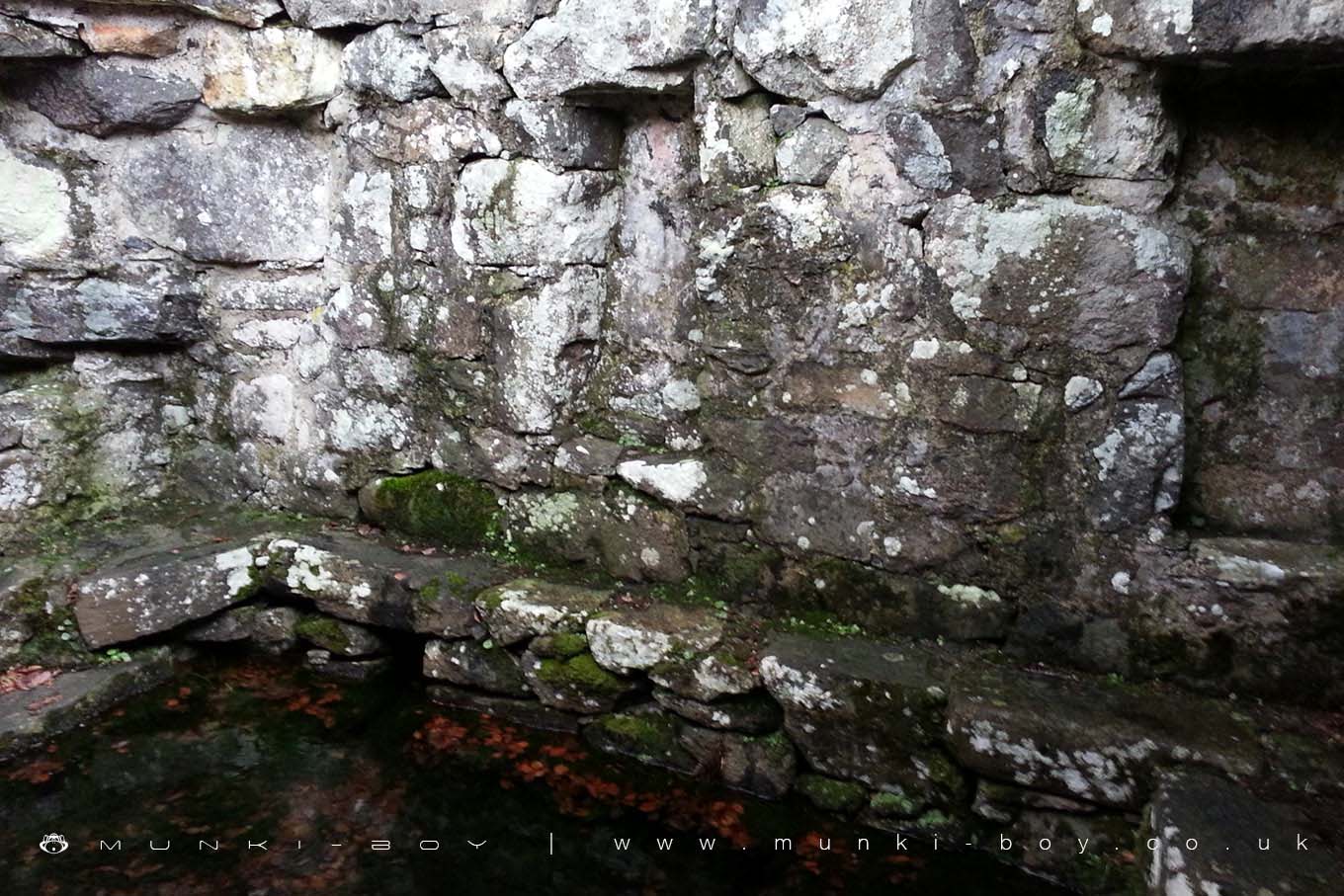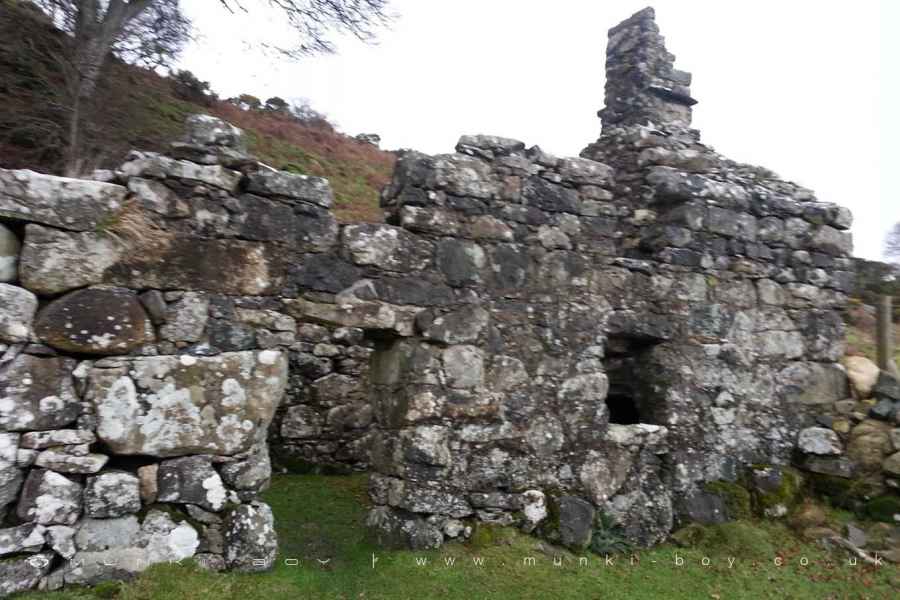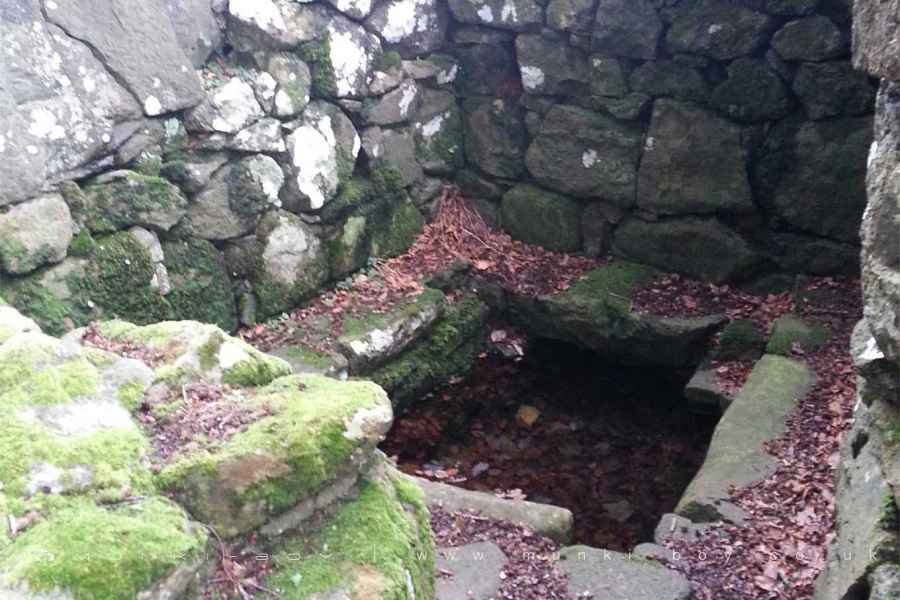
St. Cybi's Well by JRL
St. Cybi's Well
The ruins at St. Cybi’s Well include a pair of well chambers and a later addition of an adjoining caretaker’s cottage.
The well is dedicated to St Cybi, who reputedly lived in this area during the 6th century, and its waters were believed to cure disease. The well chamber itself is of uncertain date, but the cottage belongs to the 18t and 19 centuries.
There are many such Holy Wells throughout Wales, most of them now dedicated to Celtic and later saints and credited with healing properties of all kinds. The well of St Cybi has long been a place of pilgrimage, 18-century accounts speak of its waters curing warts, lameness, blindness, rheumatism and much else. Treatment consisted of drinking equal quantities of well-water and sea-water for a prescribed period, then bathing in the well and retiring to bed in the adjacent cottage to await the results.
Created: 1 December 2018 Edited: 29 November 2023


St. Cybi's Well
St. Cybi's Well LiDAR Map
please wait...
Contains public sector information licensed under the Open Government Licence v3.0
Local History around St. Cybi's Well
There are some historic monuments around including:
Tomen FawrPart of Inscribed Stone Built into Wall of Churchyard Hut Group N of Gyrn Ddu Hut Circle Settlement South-West of Pen-yr-allt UchafTwo Round Cairns E of Gyrn Ddu Hut Group and Field System South East of Farm YardFfynnon GybiAncient Village N of Llainllan Cromlech Farm Burial Chamber Four Crosses Long Hut North of Cwm FarmHut Group & Field System North West of Tyddyn Mawr (previously known as Hut Group NW of Tyddyn Mawr)Four Crosses Standing Stone Pen y Gaer CampHut Group North of CwmceiliogTyddyn Mawr, standing stone to SSW of Enclosed Hut Group at Clogwyn BachEnclosed Hut Group North West of Cwm FarmCapel Gallt-CoedBurnt Mound East of Pen-y-Gaer Early Christian Inscribed Stone in the Churchyard, Llanaelhaearn Penarth Fawr Medieval HallHut Group West of Gyrn Ddu Hut Circle Settlement West of Cwm Farm Cross-Incised Stone in Llangybi Churchyard Standing Stone N of Bettws FawrCarn Pentyrch CampRound Cairn West of Gyrn Ddu .





